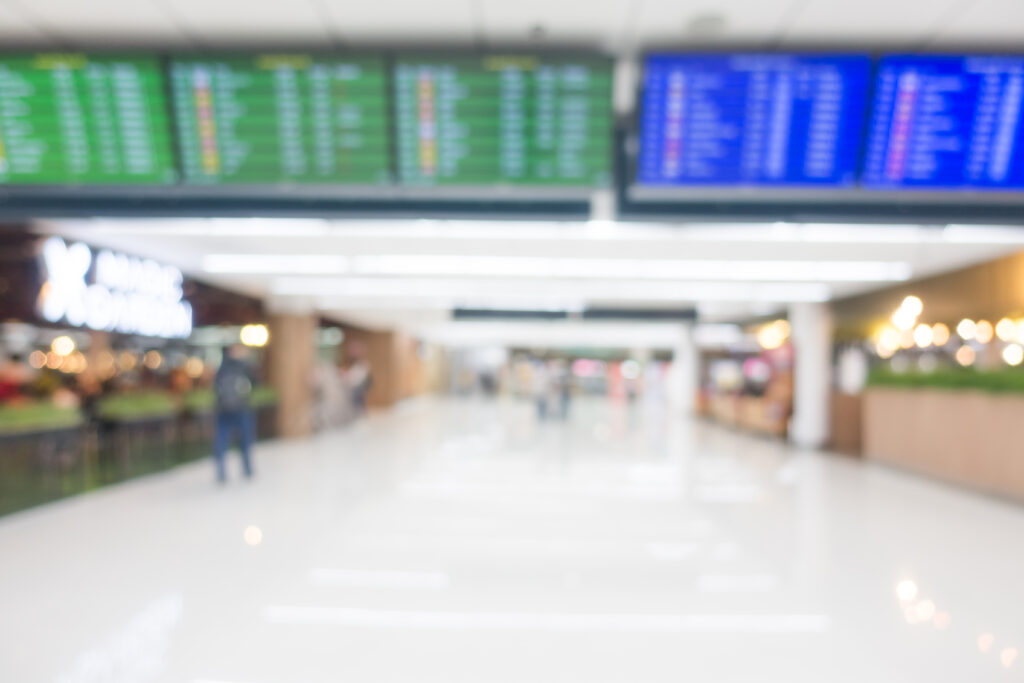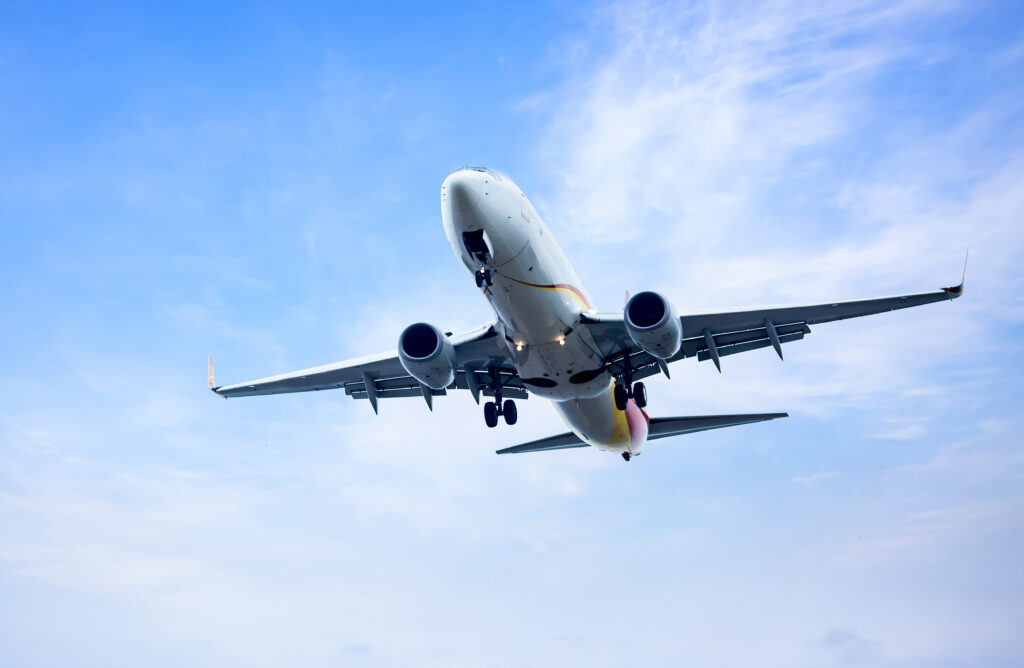74% of total travel and tourism revenue will be generated through online sales by 2027. Investing in robust airline marketing strategies is vital. New trends and technologies offer opportunities for brands to innovate and push boundaries to find new ways to boost brand awareness, attract new customers, and cultivate customer loyalty.
9 key airline marketing strategies
User-friendly websites
With the increase in online customers now and into the future, airline digital transformation is key. Your website is the digital storefront for your brand. Investing in your website is key for any airline marketing strategy:
- Simple and clear navigation: Make it easy for users to find what they need, whether booking flights, checking in online, managing bookings, or accessing information about destinations and services.
- Engaging content: Offer valuable content such as travel guides, destination information, and special offers to keep users engaged and informed.
- Personalisation: Implement features that personalise the user experience, such as recommending flights based on past searches and travel preferences.
Optimising for search engines (SEO)
One of our top airline marketing strategies is optimising for search. A strong search engine presence is crucial for driving organic traffic to your website and app. Here’s how airlines can optimise their digital presence for search engines:
- Keyword research: Identify relevant keywords that potential customers use to search for flights, destinations, and airline services. Don’t neglect niche keywords with lower traffic yet higher intent.
- On-page optimisation: Optimise website content, including page titles, meta descriptions, and header tags, with relevant keywords.
- High-quality content creation: Develop informative and engaging blog posts, articles, and videos that provide value to users and improve search engine ranking.
- Link building: Acquire backlinks from reputable websites to demonstrate website authority and improve search engine ranking. Read our SEO Travel Tips for more.

Harnessing the power of social media
We couldn’t talk about airline marketing strategies without talking about social media platforms. According to Expedia, 35% of consumers say they use social for travel inspiration. Airlines are in a unique position to showcase beautiful destinations to inspire and engage audiences, build brand awareness, and promote special offers. Here are some effective strategies:
- Engage on relevant platforms: Establish a presence on platforms popular with your target audience, such as Facebook, Instagram, Twitter, and TikTok.
- Create engaging content: Share visually appealing content such as travel photos, destination videos, and behind-the-scenes glimpses into airline operations to capture user attention.
- Run targeted ads: Utilise social media advertising platforms to reach specific demographics and interests with tailored marketing messages.
- Run interactive campaigns: Host contests, giveaways, and polls to encourage user engagement and brand interaction.
- Respond promptly to inquiries and complaints: Demonstrate responsiveness and commitment to customer service by effectively addressing user comments and messages on social media.

Embracing email marketing
Email marketing is a valuable part of successful airline marketing strategies. This tool helps nurture leads, promote special offers, and foster customer loyalty. Here are effective email strategies:
- Segmentation: Segment your email list based on demographics, travel preferences, and past booking behaviour to send targeted and relevant email campaigns.
- Personalisation: Personalise email content with customer names and tailor offers based on individual preferences.
- Promotional offers: Utilise email marketing to communicate special deals, discounts, and loyalty program benefits.
- Travel inspiration: Share inspiring travel content, destination guides, and personalised recommendations through email newsletters.
- Track and analyse results: Monitor email open rates, click-through rates, and conversion rates to measure campaign effectiveness and make adjustments as needed.
Building a mobile-first site
In the travel industry, 60% of the traffic comes from mobile devices. Whilst conversion rates are generally higher on desktops, the research phase of your customer’s journey is critical and often completed across multiple devices.
Your mobile site should be intuitive, user-friendly, and visually appealing to provide a seamless user experience. Here are key considerations:
- Responsive design: Ensure your website adapts seamlessly to different screen sizes, from desktops to tablets and smartphones. This caters to the growing trend of mobile booking and information gathering.
- Simple and clear navigation: Make it easy for users to find what they need, whether it’s booking flights, checking in online, managing bookings, or accessing information about destinations and services.
- Speed: Ensure that your mobile site is fast. 47% of users won’t wait longer than two seconds for a website to load.
Investing in data-driven airline marketing strategies
Leveraging data analytics can provide valuable insights into customer behaviour, preferences, and booking patterns. This data can be used to:
- Personalise marketing campaigns: Tailor marketing messages and offers based on individual customer behaviour and preferences.
- Optimise pricing strategies: Dynamically adjust pricing based on demand, competitor pricing, and customer segmentation.
- Improve customer experience: Utilise data to identify areas for improvement in the booking process, customer service, and overall travel experience.
- Predict future travel trends: Analyse data to anticipate upcoming travel demands and adjust marketing efforts and destination offerings accordingly.

Prioritising customer relationship management (CRM)
Building strong and lasting relationships with customers is crucial for any successful business. CRM software can increase sales by as much as 29% while improving sales forecasting accuracy by up to 32% and improving sales productivity by 39%. The result is better business outcomes all around. Airlines can leverage Customer Relationship Management (CRM) tools to:
- Centralise customer data: Consolidate customer information, including booking history, travel preferences, and communication history, to gain a holistic view of each customer.
- Personalise interactions: Utilise customer data to personalise interactions through targeted communication and tailored offers.
- Proactive customer service: Identify potential issues and proactively address customer concerns to improve customer satisfaction and loyalty.
- Loyalty programs: Develop and manage loyalty programs that reward frequent flyers with benefits like free flights, lounge access, and priority boarding.
Embracing artificial intelligence (AI) and chatbots
AI-powered chatbots can provide 24/7 customer support, answer frequently asked questions, and offer personalised assistance to travellers. Additionally, AI can be used to:
- Personalise the booking process: Recommend flights and destinations based on user preferences and past travel history.
- Trip planning: Help customers to map out their adventures. This gives airlines a chance to upsell other services like car hire, hotels, and tours.
- Price optimisation: Utilise AI algorithms to dynamically adjust pricing based on various factors, including demand and competitor pricing.
- Fraud prevention: Implement AI-powered systems to detect and prevent fraudulent activity.

Integrating sustainability initiatives
With growing environmental concerns, travellers are increasingly conscious of the environmental impact of their travel choices. Sustainability is a big part of airline marketing strategies in 2024. Brands can integrate sustainability initiatives into by:
- Highlighting eco-friendly practices: Communicate and promote efforts to reduce carbon footprint, improve fuel efficiency, and invest in sustainable aviation fuels.
- Offer carbon offset programs: Allow passengers to offset their carbon footprint through voluntary contributions.
- Partner with sustainable travel organisations: Collaborate with organisations that promote sustainable travel practices and destinations.
By implementing these diverse airline marketing strategies, airlines can effectively reach their target audience, enhance brand awareness, cultivate customer loyalty, and navigate the competitive landscape of the digital age.
Sagittarius have a wealth of success stories with travel and tourism brands. Read about Skiweekends, Contiki and Trafalgar to hear how we transformed their marketing. If you have a project in mind and would like to see how our airline marketing strategies can help you build engaging campaigns to maximise ROI, contact us.



